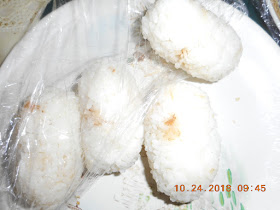I'm sure that at about this time the kids in my neighbourhood have been getting their candy. And not surprisingly, the weather forecaster on my local news show has been decked up as Frankenstein and making all sorts of merry. This kinda brings about this cross-cultural observation from me. Weather forecasters over here in North America seem to be the Court Jesters of the news teams while their equivalents in Japan are all very button-downed professorial types. Things that make me go Hmmm...
OK, this will probably be my last Halloween J-Pop song for this year, and it's one by Kahoru Kohiruimaki(小比類巻かほる), "Halloween wa Curiosity" (Halloween is a Curiosity), a track from her 1991 album "Silent". For me, my favourite track from that album is the first one "Mirage Mirror" especially because of that amazing bass intro.
"Halloween wa Curiosity" probably won't ever become one of my favourite Kohhy songs although it was created by the singer and her longtime songwriting partner, Yoshiaki Ohuchi(大内義昭). The pair have come up with many other songs that I like better, including "Mirage Mirror". Still, this one is interesting to hear since the two seemed to have wanted to go for a Beatles/Rolling Stones vibe. I mean, I think there is a melodic shoutout to "Day Tripper" at the beginning. Also, taking into account that at the time, Kohiruimaki was going more for an R&B sound, I think this particular track takes things back more to her late 80s pop/rock days.
It looks like "Halloween wa Curiosity" goes into a couple's date during October 31st, and considering the time that it was first released, Halloween truly was a curiosity for a lot of Japanese at the time. Perhaps Kohhy encountered the annual hijinks during a trip to Los Angeles which is the city out of Japan that I often associate her with. Evolving from the hijacking of a Yamanote Line train car by drunken English teachers back in that decade to that now-annual massive party in Shibuya, Halloween is as much of a holiday in Tokyo (at least) as Xmas is.
The other one is "The Great Pumpkin Waltz" by the Vince Guaraldi Trio for "It's the Great Pumpkin, Charlie Brown" from 1966. I don't think anyone would have thought about creating a romantic jazz waltz as a Halloween song, but Guaraldi did, and even hearing it tonight, I still got that ASMR shiver as soon as I heard that opening piano. Truly one of the classics.





















